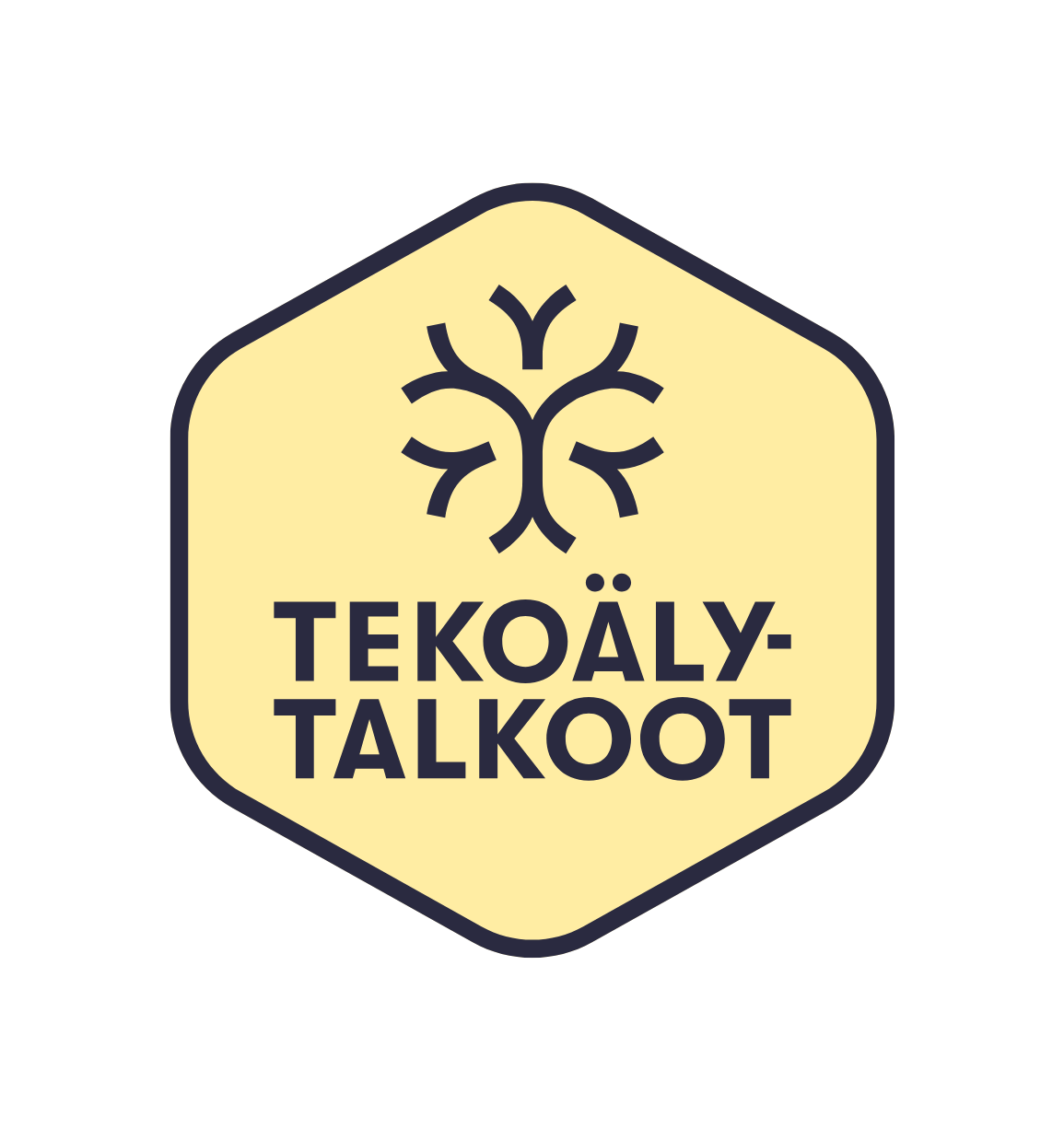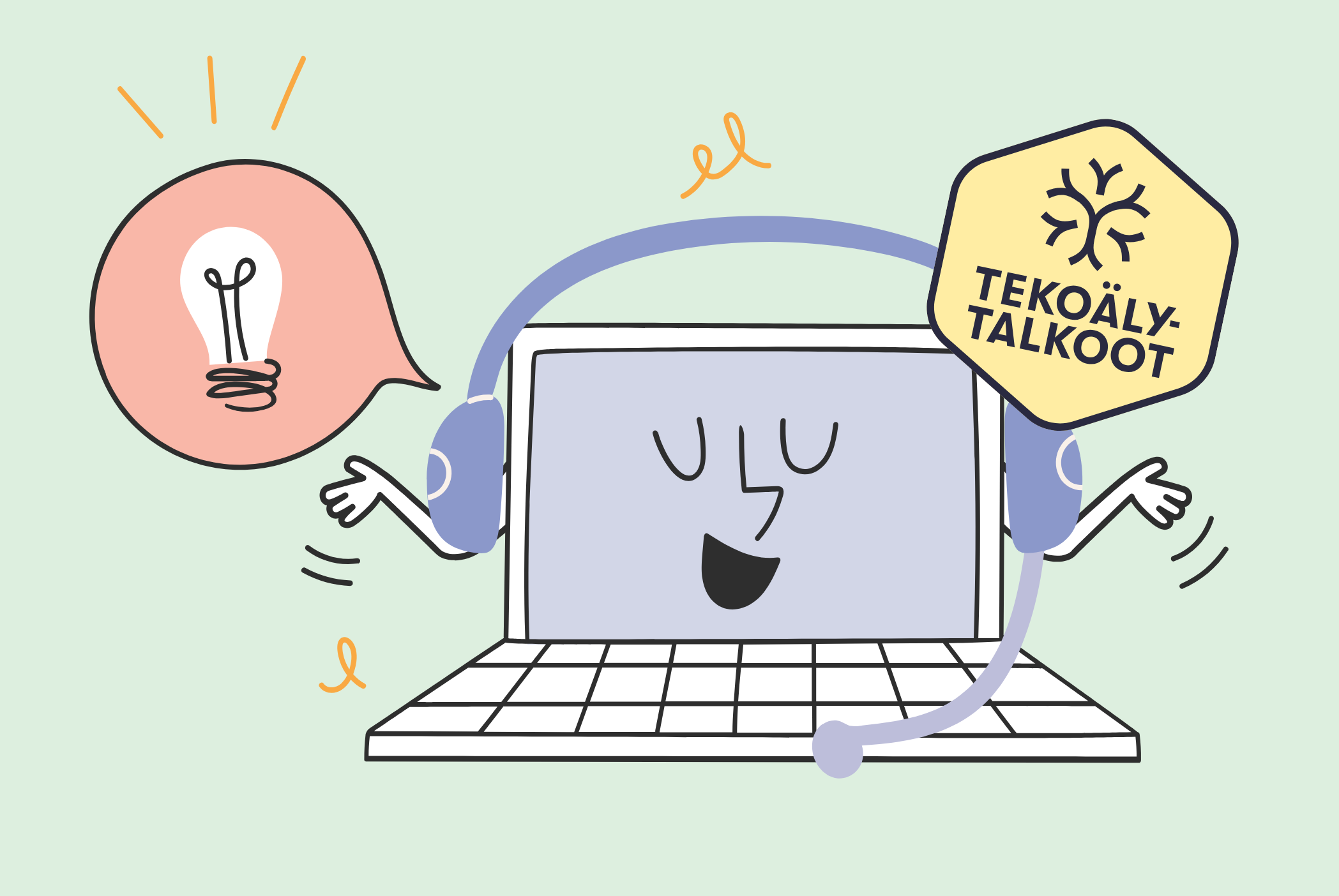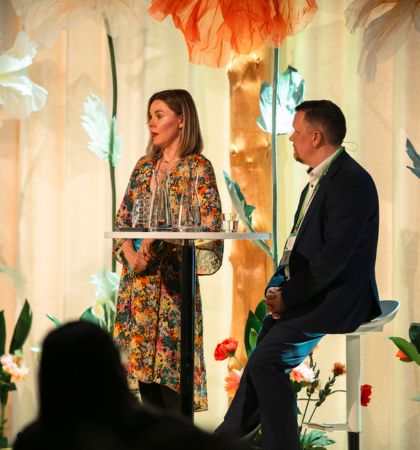AI for everyone – Building new rules for working life: freedom to develop, permission to experiment
From our blog / Article
What if AI wasn't just a tool but a coworker — helping everyone at work innovate, solve problems, and grow? Kira Sjöberg, Co-Founder of GOODIN and Data & AI Literacy Coach, is helping make that vision real through the Tekoälytalkoot training project. By giving employees the freedom to experiment with AI, this initiative is building a new kind of working life: more agile, creative, and driven by empowered individuals ready to shape the future.
Author

What if everyone at your workplace could freely use AI to improve and enhance their own work, without heavy IT processes or constant management approval? Imagine AI as a coworker with whom you can brainstorm ideas, solve challenges, and discover entirely new solutions. This is precisely the kind of future being built through the Tekoälytalkoot training project.
This training program aims to turn employees into active developers of business using AI and lays the foundation for a completely new kind of working life.
The ongoing Tekoälytalkoot training project is funded by Jotpa (the Service Centre for Continuous Learning and Employment), where 3,600 professionals are being trained to use AI to enhance work efficiency across five different professional fields. The project consists of four separate modules, each around 27 hours long. About half of the time is dedicated to working directly on individual practical projects. This is a comprehensive training that offers participants not only theoretical knowledge but also hands-on practice, integrating AI into daily tasks as a sparring partner.
One of the courses, AI Tools for Work Efficiency, developed by GOODIN, focuses on practical application: participants identify a problem or improvement area in their work and use a large language model (LLM) to solve or enhance it. This process is not purely technical but also includes considering ethics, data privacy, copyright, and biases to achieve usable and equitable outcomes.

Projects as unique as the people: Each one different
In just over three months, nearly 300 practical projects have been produced in the program. One of the most interesting observations is that no two projects have been alike. This diversity illustrates how differently people think, how their needs and approaches vary, and how generative AI adapts to many roles, functioning almost like an extension of the human. Each participant brings their unique perspective to AI use, creating a vast range of use cases for how AI tools can improve daily tasks and work development.
This diversity also demonstrates how AI literacy is best improved through practical application and doing. As participants learn to work iteratively with language models, they also learn to recognize their own biases and reflect on their thinking. This not only enhances their ability to use AI but also develops their critical thinking about AI and information processing – a central focus of this course.
AI, especially generative AI and language models, is practically a mirror of its user. This concept must be clear so that people understand the input-output rule when using different AI tools. By building filters and rules, extensive use and training of language models can (hopefully) lead to models becoming more equitable. An example of this is an article published in Tiede magazine in 2024, which described an experiment where (guarded) language models helped change conspiracy theorists’ opinions when they were prompted for information, and the language model was guided to respond objectively and tirelessly. This highlights the positive potential of these technologies.

Is a change coming to the culture of Finnish leadership?
Through Tekoälytalkoot, it is clear that a cultural shift in Finnish leadership is inevitable. Companies that dare to embrace this change will be the winners. It’s not just about adopting new tools, but a fundamental change in how leadership is understood and practiced.
Traditional hierarchical leadership models, where AI tools are used only according to top-down instructions, no longer work in the fast-moving world of AI. Instead, a new mindset is needed, which can be described as a Citizen Developer approach. This means giving people in the organization the freedom and opportunity to use AI tools independently to enhance and innovate their work. This change process may be challenging in a security-oriented country like Finland.
Concrete example of the value potential of the citizen developer model (hypothetical calculation)
The following example illustrates the possible economic value and potential of the Citizen Developer model, which practical training like Tekoälytalkoot can help achieve. Although these are not direct results from the training, the model provides a concrete benchmark for companies considering the citizen developer approach. Below are some purely hypothetical numbers to provide a basis for thought.
1,000 ideas per year, of which:
- 1 idea (0.1%) is a “unicorn,” proposed added value of €500,000 per year.
- 99 ideas (9.9%) improve work scalability, total value €990,000 per year (99 ideas x €10,000 per idea).
- 450 ideas (45%) enhance individual work motivation and efficiency, estimated value €90,000 per year (450 ideas x €200 hypothetical euros).
- The remaining 450 ideas (45%) do not yield direct financial benefits but offer valuable lessons through success or failure and do not cause harm.
Even though many ideas do not produce direct monetary gains, the improved well-being and motivation of employees likely generate significant indirect benefits. Of course, an organization requires a framework for the ethical and secure use of AI, but this should not be too rigid and instead allow for iteration in a change-oriented process.
Studies show that investing in workplace well-being can bring multiple economic returns, and motivated employees are on average 17% more productive (Gallup).With the above hypothetical euro assumptions, the annual total value of innovations could be up to €1.5 million in an organization of 100 people.
The practical courses of Tekoälytalkoot not only provide essential skills for utilizing AI but also open diverse use scenarios and emphasize the need for leadership to evolve towards a model where employees are given more freedom and opportunities to innovate (Citizen Developer thinking). In the future, such practical training will be key to strengthening organizational competitiveness, improving AI literacy, and building new, empowering leadership.
An AI tool or in this case a large language model is not just a tool but also a catalyst for new ways of working and thinking. Of course, this also requires a mindset change from everyone, which may not be possible or at least not easy. High-agency traits in individuals have recently been highlighted as a future skill or characteristic, and the need for coaching in organizations to achieve this is real – for example, using the Kaizen method known from Lean practices is considered effective.
Through the AI Tools for Work Efficiency course, participants become active AI users who challenge their thinking and approach problems in new ways. This not only improves AI literacy but also lays the foundation for a new kind of working life, where everyone has the opportunity to be an active part of development and help Finland pursue innovation-driven business and broader societal growth.
About the Author
Co-founder of Fusion company GOODIN with a rich soon two-decade career. Kira Sjöberg has excelled in business design and people-centered change roles across diverse sectors. Her hallmark is a data-driven approach that seamlessly blends quality and quantity metrics. Kira's expertise transcends boundaries, leading transformative initiatives that harmonise data insights with human-centric strategies. Her adeptness in leveraging data for informed decision-making and fostering innovation has fueled operational excellence. Kira's core skills are in the orchestration of change, guided by an unwavering commitment to both analytical rigor and empathetic leadership.
MORE ON THE SAME ISSUE
Want to know more?
Connect with us.






